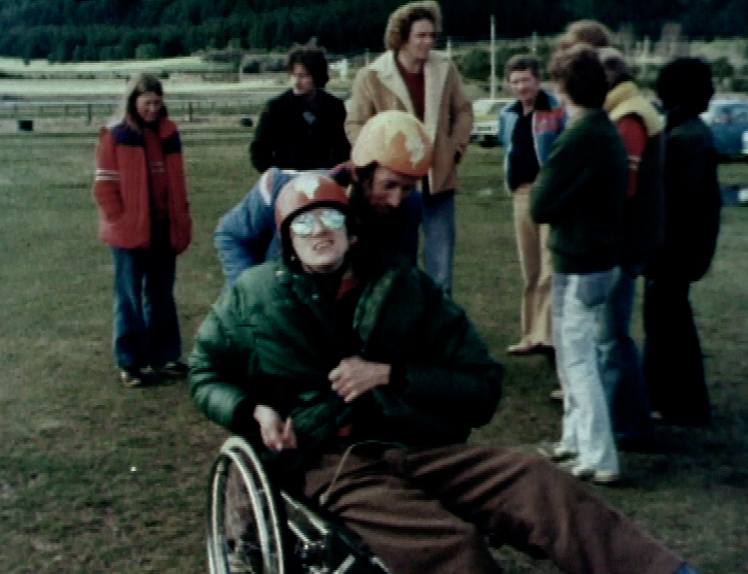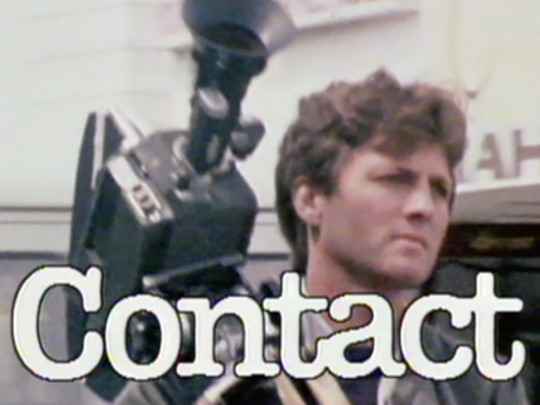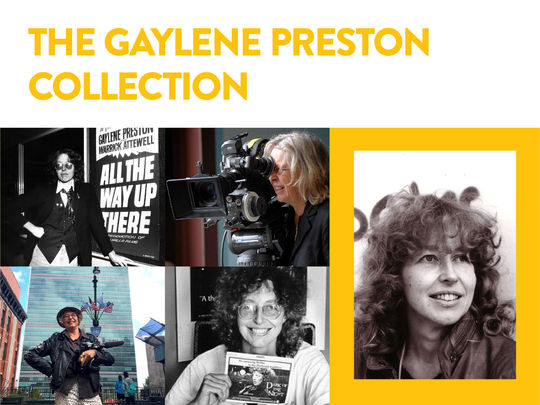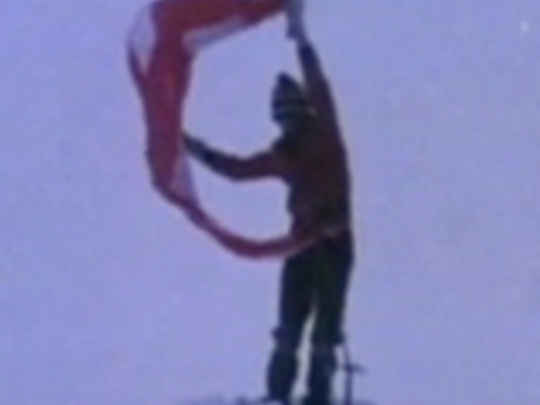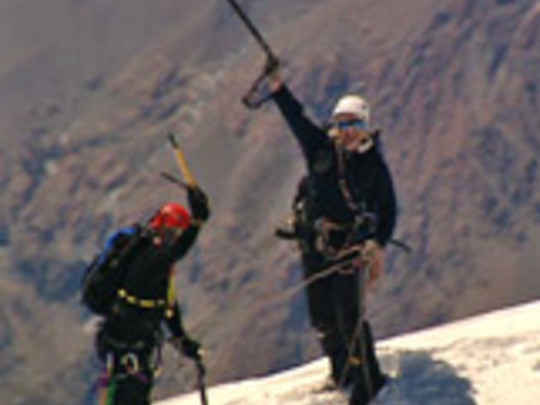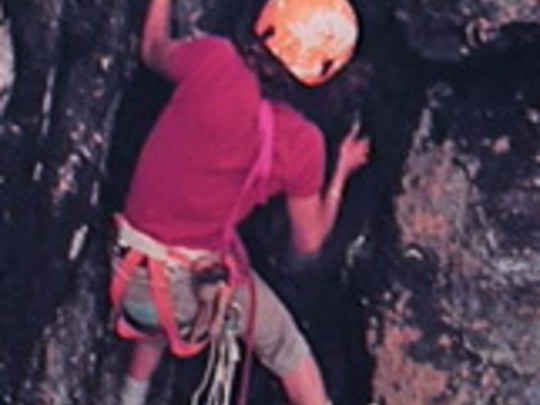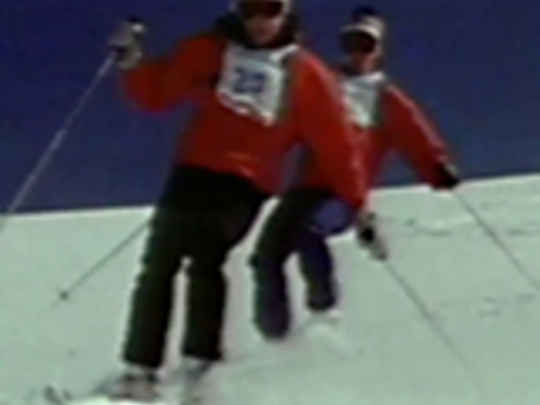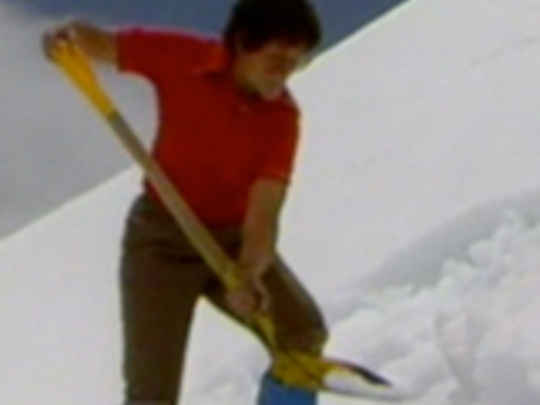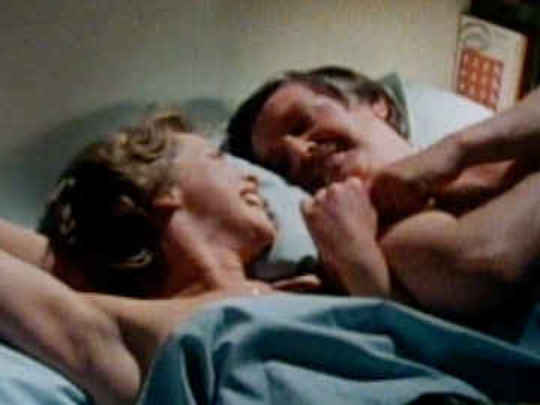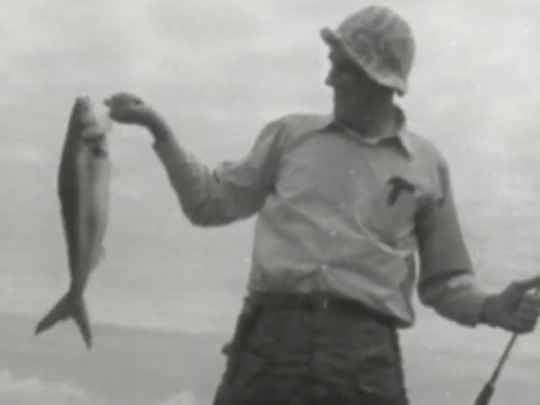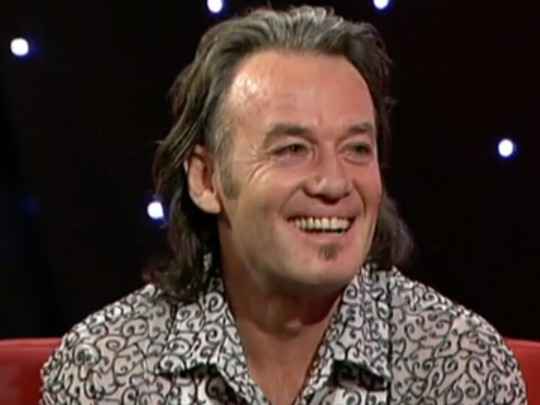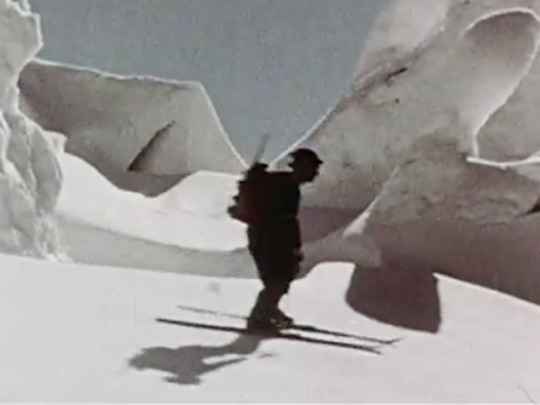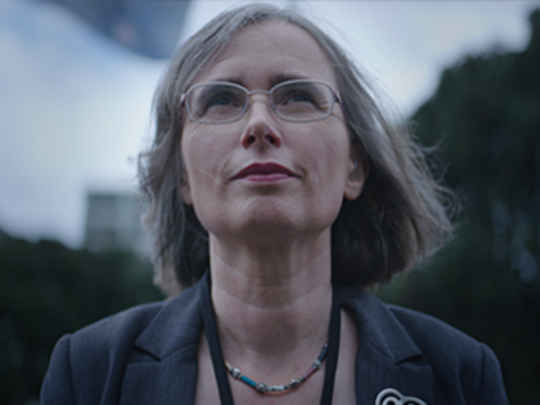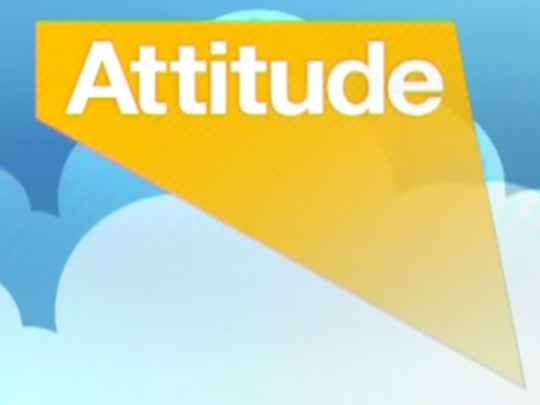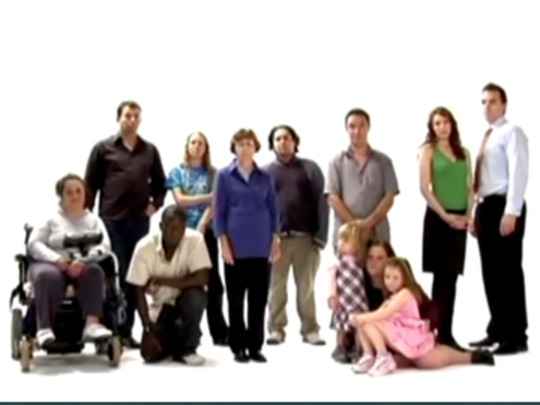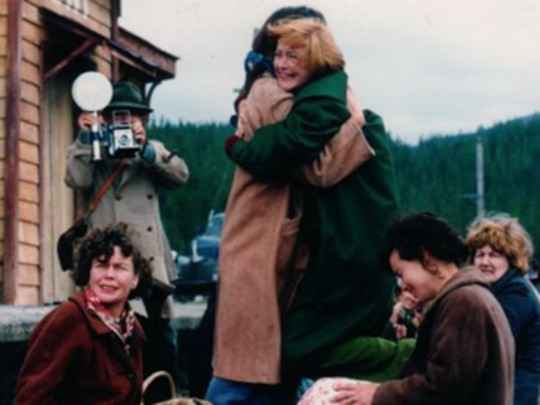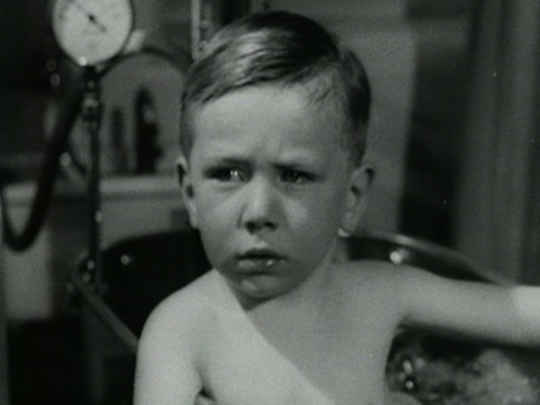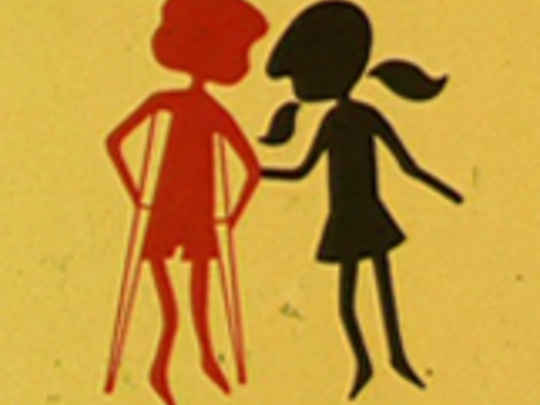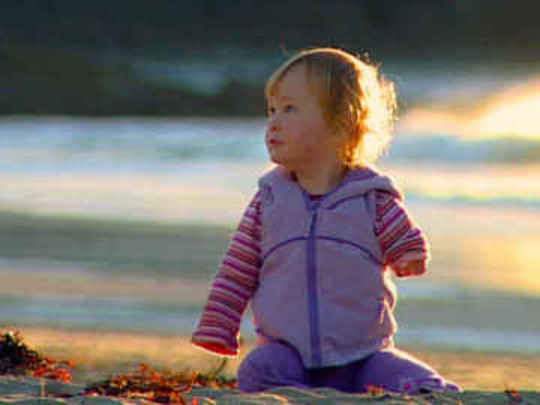Although he can't walk properly, can't talk properly, that doesn't stop him.
– Narrator David Yerix introduces Bruce Burgess
The highlight of this week is this attempt to get Bruce Burgess to the top of Ruapehu. He's a really really tremendous guy; he's been on a number of courses here, and this attempt to climb Ruapehu with him is the result of a dream he had.
– Mountaineer Graeme Dingle addresses the group at Tūrangi Outdoor Pursuits Centre
I would die for that dream. I'm going to do it!
– Bruce Burgess, at the start of this documentqry
Some might have seen only the disability. Graeme Dingle saw the determination. He came to understand the spirit that drove Bruce to accept the challenge of his own dream, and it became a challenge that they shared together.
– Narrator David Yerix
Gaylene Preston is the first filmmaker to profit from the corporation's new scheme for commissioning and subsidising local films introduced last year ... In all, the Broadcasting Corporation has paid $12,500 of the $15,000 budget for All the Way Up There — and that's far more than Gaylene expected.
– Writer Warren Mayne in The Dominion, 5 February 1980
...the centre of that movie is the interview with Bruce Burgess whose disability is quite extreme aphasia, which has a huge impact on his speech. It takes him a while to say what he has to say, and we had to subtitle it. The commissioning editor at TVNZ said, "Whatever you do, don’t interview him. Go away and get some good wallpaper footage, and then put a commentary over it." But making a film where the audience are brought to that interview and feel able to sit comfortably and wait to hear what he has to say, no matter how laborious, that’s the reason for making that film. It’s all about changing attitudes..
– Director Gaylene Preston on interviewing Bruce Burgess, Senses of Cinema website, October 2010
[The film] successfully brought one of [Gaylene] Preston' s continuing preoccupations — an interest in what might be called "small-scale heroism" — to the attention of a mainstream audience.
– Writer Estella Tincknell in 2007 book New Zealand Filmmakers, page 73
[Producer/cinematographer] Waka [Attewell] had worked with disabled people in the UK. Could I make this unusual mountain film with him? I hesitated. My problem was the mountain... Luckily Waka didn't want me to go up there anyway. When it came to the shoot, he was happy for me to stay at base camp, out of his way. They didn't need two disabled climbers on their expedition.
– Gaylene Preston on first hearing about the film, in her 2022 autobiography Gaylene's Take - Her Life in New Zealand Film, page 201
Diana [Winn] came back from the international television market, held every year in Cannes, with a sale to Encyclopaedia Britannica for North American educational rights, paying us three times as much as All the Way Up There cost to make.
– Gaylene Preston on how National Film Unit salesperson Diana Win helped her career, in her 2022 autobiography Gaylene's Take - Her Life in New Zealand Film, page 203
The most important thing to me is to get Bruce to the top of Ruapehu. It's probably more for me now than it is for him, but its very much for him: I will feel really great because I know that he will feel great ... I'm quite fearful of failing really to get him to the top.
– Graeme Dingle
